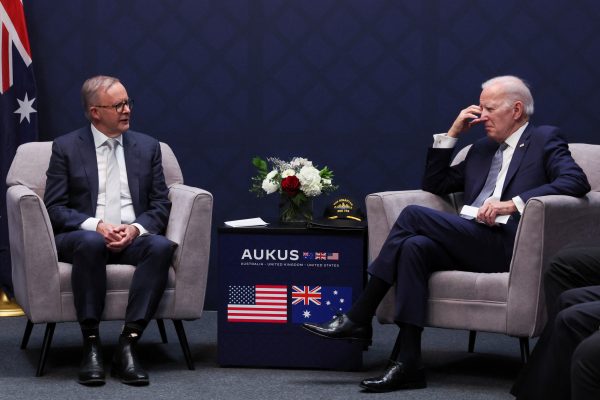Australia moving to net zero reduces global emissions by just over 1 per cent. Australia supplying zero-emissions goods — especially processed forms of materials we currently export in raw form, like iron and aluminium — could remove another 7 per cent. These would be among the emissions that are hardest to abate in the rest of the world.
The densely populated rich countries of Northeast Asia — Japan, South Korea and China — and Europe (including the United Kingdom) are poorly endowed with renewable energy resources. Power from the best solar and wind resources in most of Europe is around twice as expensive as from the best in Australia. It is even worse in South Korea and Japan.
Even if the resources were of higher quality, there is nowhere to put hundreds of square kilometres of solar farms, let alone the tens of thousands that are required. Western China has large resources, but they are small in comparison to the size of the economy and the demands of decarbonisation.
All Australian governments now embrace the superpower opportunity — the federal Australian Labor Party-led government as much as state and territory governments.
Australian Prime Minister Anthony Albanese’s Labor government’s legislated commitment to a 43 per cent reduction in emissions and has repeatedly referred to an expectation of 82 per cent renewables by 2030. That is a start. Achieve these, and Australia has a base for acceleration beyond 2030. Fail on the 82 per cent, and Australia will fail on the 43 per cent. Fail significantly on the 82 per cent expectation and electricity prices will rise catastrophically, as coal-based generators retreat into history without replacement.
The whole progress in reducing Australian emissions over the past decade has come from renewable electricity. Industry emissions have blown out egregiously, mainly from coal and gas mining and exports. Since the abolition of carbon pricing, the renewable energy target (RET) has provided an incentive for renewable energy investment.
The federal government’s investment in new electricity transmission capacity is a necessary but insufficient condition for new electricity generation. The low and often negative electricity prices when the sun is shining, the wind is blowing and the renewable generators are operating at high levels are great for consumers’ power costs. But these prices do not provide incentives for continuing investment.
Without new incentives, renewable energy investment will fall far below that which is necessary to reach 82 per cent and 43 per cent. Much higher electricity prices will follow.
The Superpower Transformation showed that in the absence of carbon pricing, the RET is the familiar, low-cost mechanism with a proven track record for promoting renewables. Extension and recalibration of the target is necessary.
Reform of the RET and continued expansion of renewable generation to 82 per cent and beyond will bring lower and often negative power prices when the sun is shining and the wind is blowing. Together with continued high prices at other times, this provides the necessary incentives for investment in storage and peaking assets that create security and reliability in a system in which most power comes from wind and solar.
The Clean Energy Regulator — set up to administer carbon pricing — and the RET continued to operate with high professional quality and integrity through the years of Australian Coalition government from 2013–22. The Clean Energy Regulator can administer the extended and recalibrated RET scheme and provide practical guidance on new parameters.
Even with achievement of 82 per cent renewables, building the long pipeline of new gas and coal projects would blow our emissions target. That pipeline is a bet against humanity’s success against climate change. If the world succeeds, most of the new investment is redundant.
The international system has decided to discipline wasteful investment through the decisions of users of coal and gas and the market anticipation of them. One day, Australian carbon pricing will add to the discipline. In the meantime, the Commonwealth’s safeguard mechanism is much better than nothing.
But the US government’s Inflation Reduction Act (IRA) may threaten Australia’s zero carbon opportunity. The IRA’s protectionist character is bad news for Australia. It extends the destruction of the rules-based international trading system commenced by former US President Donald Trump.
US ambassador to Australia Caroline Kennedy says Australia should join the United States. But Australia does not have the United States’ capacity to run apparently limitless budget deficits — through what Charles de Gaulle once described as the ‘exorbitant privilege’ of printing international currency.
The IRA will be distracting and destructive. But it is unlikely that the US President and Congress will put hundreds of billions of dollars into subsidising the decarbonisation of Northeast Asia and Europe. Australia should make the policy changes that make sense from its own perspective. Those policy changes include extending and recalibrating the RET and shifting to a cash flow-based corporate taxation system, at least for the zero carbon industries.
Australia should politely decline the ambassador’s invitation to join the trashing of the rules-based trading system that has served it well. Australian knowledge, talents and natural advantages, not US subsidies, will underwrite decarbonisation of the rich and densely populated economies of Northeast Asia and Europe.
Ross Garnaut is Emeritus Professor of Economics, University of Melbourne and The Australian National University, and Director of ZEN Energy. This article is based on Professor Garnaut’s introductory remarks in a conversation with independent federal MP Kate Chaney at the University of Western Australia. His latest book is The Superpower Transformation: Building Australia’s Zero-Carbon Future (BlackInc and Latrobe University Press, 2022).
A version of this article was first published here in The Australian Financial Review.

